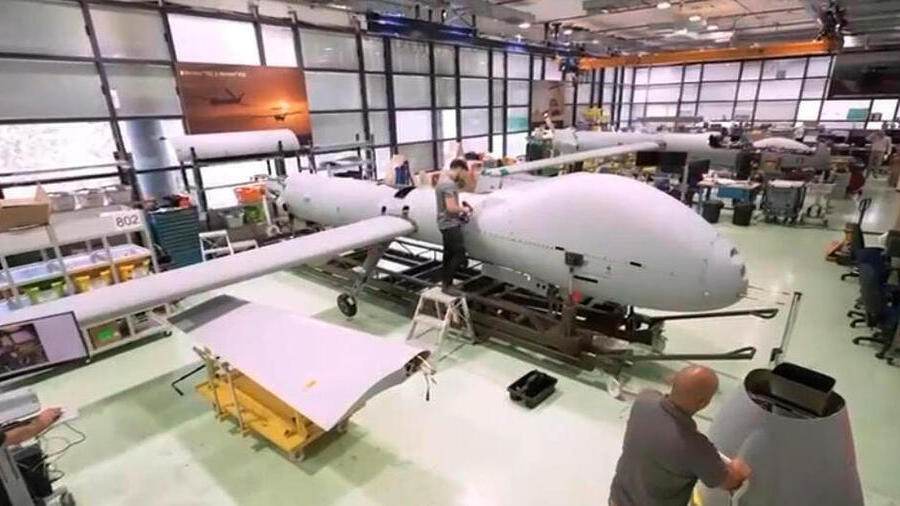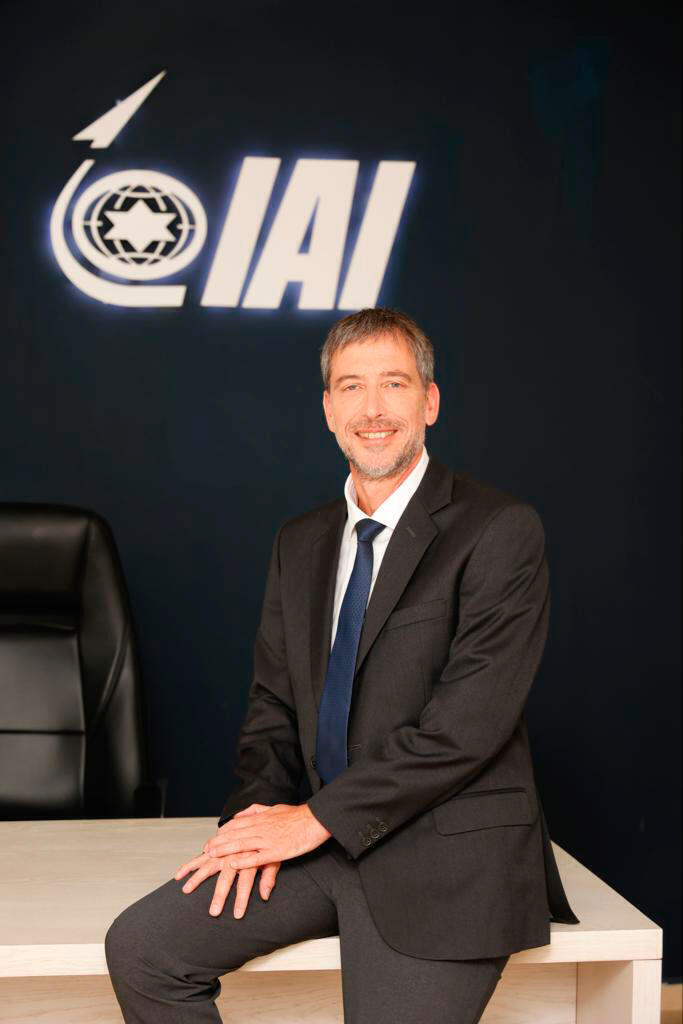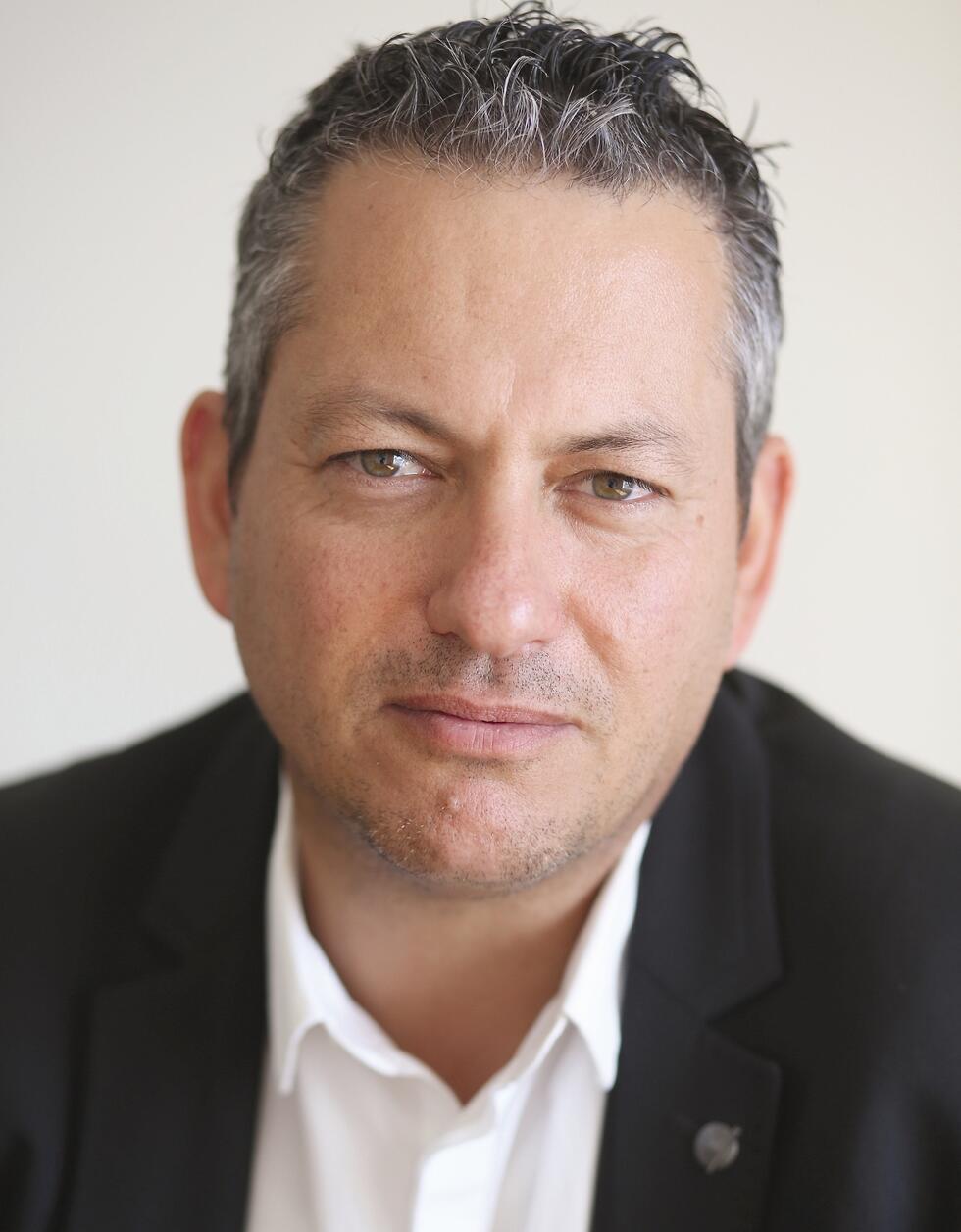Since the beginning of the war in Gaza and following Iran’s failed attack on Israel, Israeli security companies have been attracting increasing interest from candidates, some of whom work in major tech companies and want to contribute to the war effort.
Others are seeking job stability, and there are also those who are seeing the advanced technology in security companies for the first time and want to take part in it. In choosing between the options, salary and the possibility of a life-changing exit, or “protecting the country” - more and more engineers and programmers prefer the meaning over the money.
For example, a software engineer and project manager in the field of air defense at Rafael Advanced Defense Systems, who asked to remain anonymous, left the company in 2022 to work at Intel. In March, he returned to Rafael.
"There has never been a military operation I haven't been a part of. I served as an officer in an elite unit in the Air Force for 9 years and then worked at Rafael for 24 years. On October 8, I called my former managers at Rafael and offered my help. I knew it was almost impossible, but I had to take part. I really liked working at Intel, I was interested, exposed to new things, studied, felt that I contributed a lot, was appreciated, and also made money, but I couldn't shake off the feeling that I wasn't part of the war," he says.
In March, he received an offer to return and head the project he currently works on. "My son is involved in the fighting; he's a soldier in an elite unit in Gaza. When I received the offer, knowing that it's a system that protects my son, I couldn't say no," he adds.
A 200% rise in resume submissions
The rate of candidate referrals to Israeli security companies and the responsiveness of candidates to approaches by companies has been on the rise since the beginning of the war. Rafael notes a 40% increase in initial inquiries; the Israel Aerospace Industries (IAI), which is holding an active campaign to recruit engineers, saw a 200% increase in submitted resumes, receiving thousands of resumes per month; and Elbit Systems, saw an increase in the number of inquiries and, more importantly, a 30% decrease in the time required to fill a position.
"We've had employees who moved to work at startups and returned because they want to do something meaningful, and this trend is continuing. Elbit recruits many employees for a very wide range of jobs, and we see the amount of self-initiated inquiries by people. We also identify much larger interest and willingness and a desire to be part of something meaningful by the candidates,” says Dr. Shelly Gordon, Executive Vice President of Human Resources at Elbit Systems.
“I think there are two main reasons for this: the first is that the war has revealed very innovative technologies in a significant way. And the second reason is the desire to do something meaningful."
According to Nir Reiss, Deputy Chief Human Resources Officer at Israel Aerospace Industries, people working in other technology companies are interested in transitioning to the industry because of the war.
"Some of them wouldn’t have considered moving from the tech industry to the aerospace industry if it weren't for the changes made because of the war. For others, it's a continuation of their reserve service. We’re actively working on this.
“We believe that we need to ensure that people returning from reserve duty find a good place in the job market. It's an opportunity for us to recruit people who are looking for meaning and who want to come back from the reserves to a stable and growing place that gives them solid ground beneath their feet and be patient with them during prolonged reserve duty periods."
Rafael attributes the increase in inquiries to people seeking meaning, technological challenges, and career advancement. Since the start of the war, people have primarily approached the company because they want to feel meaningful, dealing with things that truly matter during this time.
"People want to be part of a success story, and since October 7, everything we’ve done also motivates people to want to work in a meaningful organization. Additionally, we’re the largest employer in northern Israel, and people want to be part of the organization in the area," says Sagit Sela-Gal, Executive Vice President of Human Resources at Rafael.
Rafael employs 9,000 workers, most of them from northern Israel, and the company plans to recruit another 2,200 workers this year. Elbit will also recruit close to 2,000 people this year, with over 800 positions currently open. The company employs over 13,000 workers; and the IAI, which employs 7,000 engineers, is expected to recruit 1,500 people in 2024.
Recruitment firms also notice a 20-25% increase in the recruiting of security company employees compared to other companies in the market. "These are peak recruitment rates because they deal with an extraordinary backlog that requires many production workers to meet some of it and, of course, alongside them, many technological workers who will train and develop the systems and maintain their functionality and accuracy in real-time,” says Chaim Geron, co-CEO and co-founder of Infinity Labs R&D.
“The most sought-after positions are development roles in their various aspects. Along with them, we can also see the growth of small security companies that provide solutions for operational needs due to the challenges of the war emerging as the fighting continues," he adds.
For example, Tomer, a government security company developing, among other things, missile propulsion for missile interceptors, currently employs 60 new workers, including researchers, engineers, and development and manufacturing workers. Since the beginning of the war, the company has hired an additional 65 employees.
"Israel has always been considered a technological leader with high capabilities, but the Iranian attack in which over 300 missiles, including about 100 ballistic missiles, were fired at us, something that has never happened anywhere else and against any other country, led to a practical understanding of Israeli superiority in these aspects, which has echoed worldwide,” he says.
“It's important to understand that behind all these systems are talented and dedicated individuals who have been developing and refining them for many years in accordance with the developing threats and continue to do so all the time according to current and future dangers," says Giron.
No stock options or business exits
Many startup company employees also joined Elbit since the start of the war, partly because security industries today offer job security that is sorely lacking in the tech sector. Thus, an algorithm engineer who wanted to stay anonymously joined the company three months after working for two years at WISENS.
"In our estimation, there has been a 25% increase in demand for employees among security companies in Israel since the start of the war. We see that security companies are attracting employees from the tech industry. One reason for this is that many of them have been laid off due to the downtrend in the industry,” says Dana Levi, CEO of Danel Group’s Human Resources Division.
“Secondly, security companies currently offer job stability often offer job security for coming years, so the risk of losing a job, contrary to the tech industry, is decreasing. In this period, job stability is of great significance, sometimes more than the options and bonuses offered by tech companies. Also, security companies offer a variety of benefits and attractive conditions to their employees: competitive salaries, especially for engineers and specialists, advanced challenges, health insurance and medical services, professional training and advancement, pension plans and generous compensation, and more.”
The base salary of engineers in security industries can’t compete with the salaries offered by companies like Google or Microsoft. For example, an electronics engineer with ten years of experience earns between 30,000 and 35,000 shekels per month, a mechanical engineer with 5 to 10 years of experience earns around 25,000 to 30,000 shekels per month, and an algorithm engineer with 5 years of experience earns a similar amount, according to Danel’s data. However, this is a base salary, and security companies have various ways to reward employees with bonuses and long-term incentive plans.
"Our average experience term is 10-12 years. I think Elbit, unlike organizations like Microsoft or Nvidia, due to the wide range of their products and various divisions allows an employee to move within the organization, work on a different set of products, engage with entirely different clients, and simulate an experience of working for a new company, in a completely different content world. There is a very broad spectrum of career development opportunities, and that’s a serious advantage," says Gordon.
Another factor that attracts engineers to work specifically at Elbit is the investment in research and development. Elbit invests $503 million in the field, a sum among the highest in the industry.
Despite the tempting salary, bonuses, and the possibility of a business exit in the tech market, the security industry offers meaning and job security. "You won't be able to make an exit from Rafael. On the other hand, there's job security. The hi-tech industry is very unstable," says Sela-Gal.
"We don't pay less. We just aren’t traded on the stock exchange, but our salary is fair compared to the market. It's just not affected by the stock. Our employees have days when their stock goes up and days when it goes down. With us, the job is consistent over the years,” she adds.
Today, when the technologies developed by the security industries' key players are evident, and their efficiency has been repeatedly proven in war, less persuasion is needed to convince workers.
Nevertheless, the IAI still actively recruits employees with the slogan "We Don't Stop," emphasizing the company's employees are committed to supporting Israel's defense establishment and following orders.
"We believe the IAI is a company worth working for. The salary isn’t top of the line like in tech companies, but we offer a decent salary and show stable growth. We offer meaning and action work that make people understand why they stay in the company,” says Reiss.







